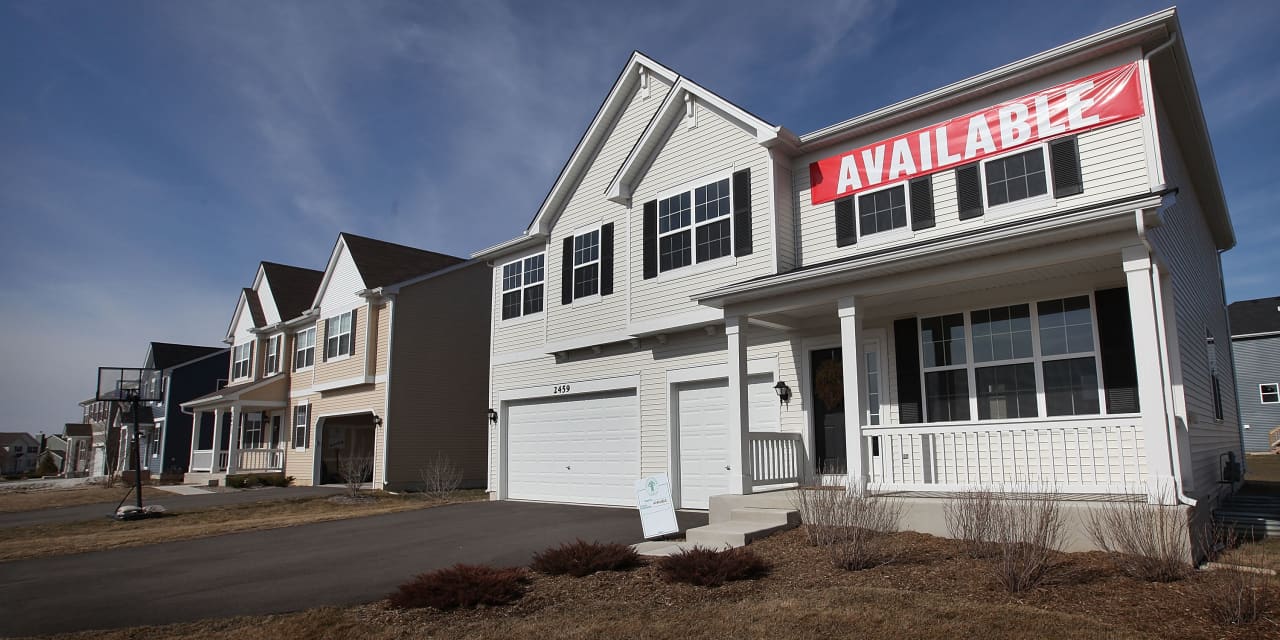Home sales look set to end the typically-hot summer season on a muted note as mortgage rates hover above 7%. But the new home market—and home builder stocks—could just be getting started.
Data in recent weeks have painted a languid picture of housing market activity heading into the fall. Existing-home sales in July—the most recent month for which National Association of Realtors data is available—fell to a seasonally-adjusted annual rate of 4.07 million, the lowest such reading since January.
Other data points offer little hope for significant improvement in the coming months. Pending home sales, a measure based on contract signings, gained in July for the second consecutive month, but remained well below year-ago levels, according to the National Association of Realtors.
August data from the Mortgage Bankers Association, meanwhile, suggest that home purchase demand remained low overall last month.
“Elevated mortgage rates and tight housing inventory continue to weigh on home buying activity,” Joel Kan, the mortgage bankers group’s deputy chief economist, said in a statement.
This year has been a difficult one to buy a house, particularly for consumers shopping for a previously owned home. Mortgage rates tracked by
Freddie Mac
have remained above 6% all year, rising as high as 7.23% last month, the measure’s highest level in more than two decades. Home listings have remained in short supply—a likely byproduct of the pandemic’s earlier refinance boom, driven by low rates at the time—helping send home prices higher.
Expect more of the same this fall, says Nicole Bachaud, a senior economist at
Zillow.
“While we’re still seeing things move off the market quickly, there’s not very many homes to move—so we’re going to see sales continuing to be low for the existing [homes] side,” she says. The low inventory of previously owned homes for sale will also move prices higher: Zillow recently said it expects prices to rise 6.5% year-over-year by next July.
While the existing-homes market—which generally comprises the bulk of all home sales—remains challenged, it’s a different story in new construction. Builders this year have benefited from the housing market’s short supply, data suggest: New home sales, a government measure based on contract signings, increased in July to the highest seasonally-adjusted level since February 2022.
“Builders are still able to offer things like mortgage rate buy-downs and other incentives that really do tip the scales towards new construction,” Bachaud said. “We are definitely going to see new construction sales staying fairly strong.”
August’s rise in mortgage rates could cut further into existing-home demand. But there’s little to suggest that builders’ business has been buffeted by climbing rates, says Carl Reichardt, Jr., a home building analyst at BTIG.
“There’s nothing from the public builders that they’ve said publicly that makes me think that August is unusually weak,” Reichardt says.
The housing market typically slows down toward the end of the year, as temperatures drop in much of the U.S. and families prepare for the start of the school year and holiday season. But just because the market slows doesn’t mean home building stocks do. These shares often perform well in the later part of the year as companies discuss their plans for 2024 and investors look ahead to the spring season, Reichardt says.
Indeed, stocks related to home building, on average, have outperformed the broader market between the end of September and the end of January, according to a Dow Jones Market Data analysis of FactSet data since 2006. The
SPDR S&P Homebuilders ETF
(ticker: XHB) has risen an average 6.3% between the end of September and the end of January, beating the broader
S&P 500
‘s average 3.4% gain over the same period.
Among the fund’s top home builder holdings are
PulteGroup
(PHM) and
Toll Brothers
(TOL), whose shares have soared 82% and 68% so far in 2023.
Write to Shaina Mishkin at [email protected]
Read the full article here





